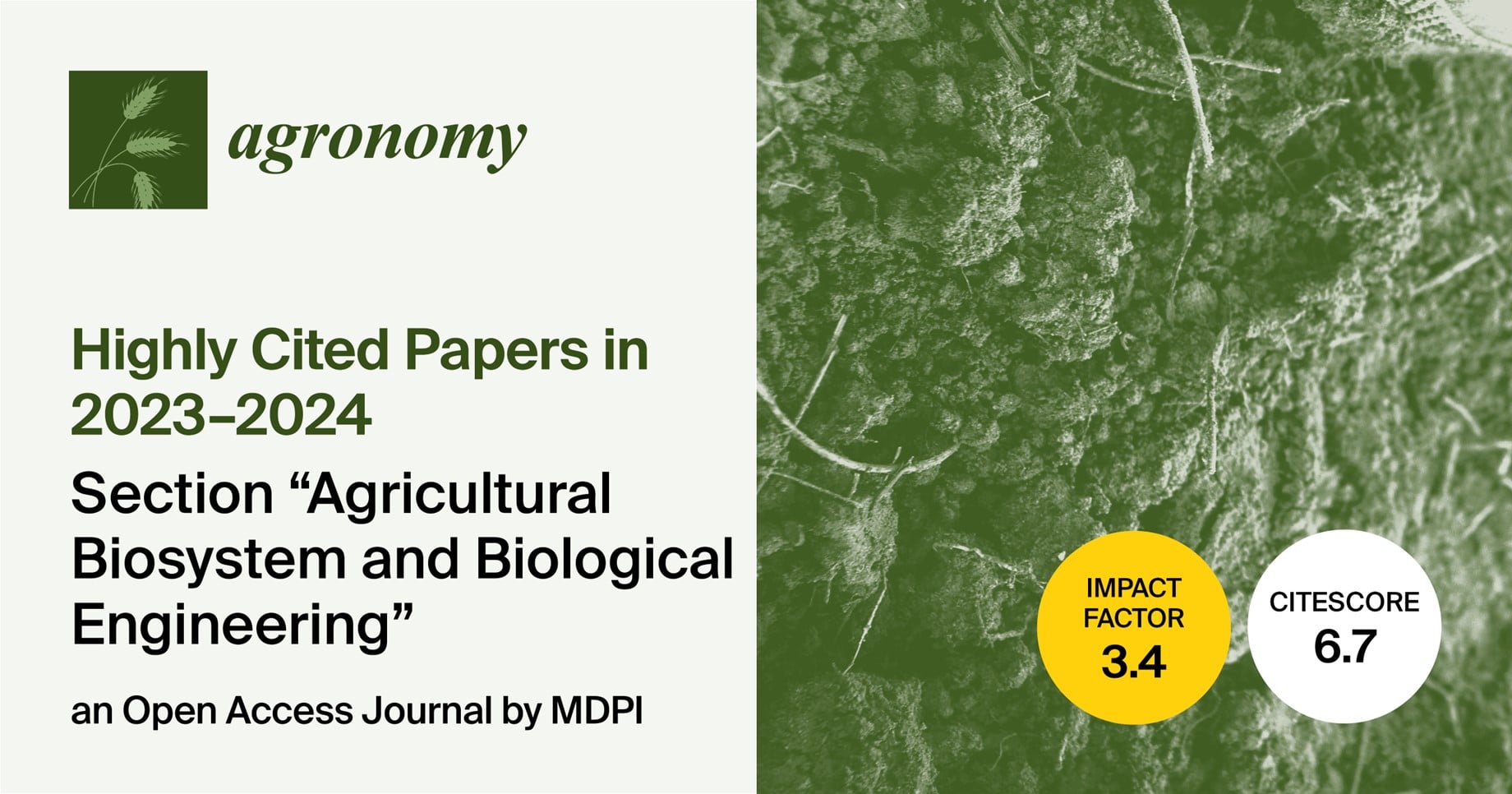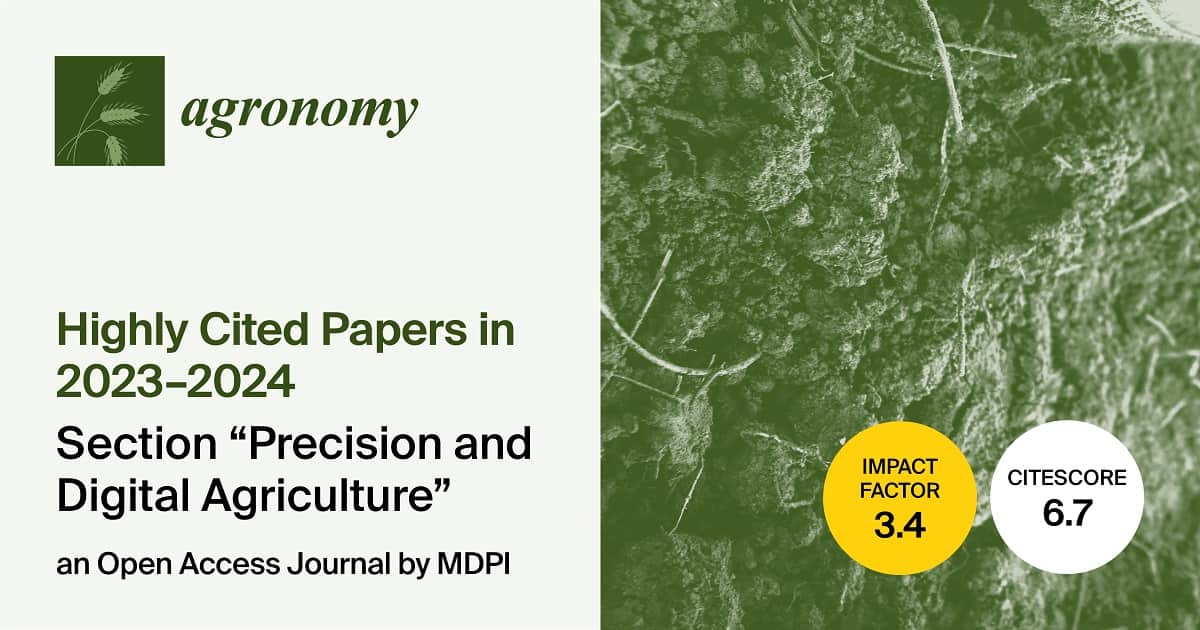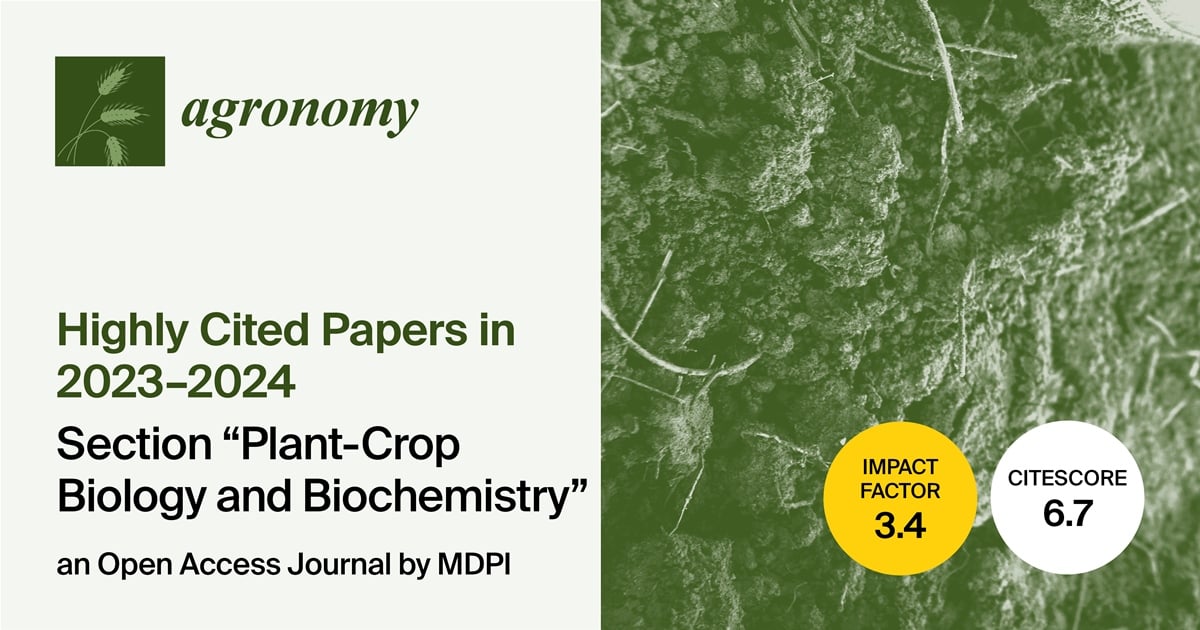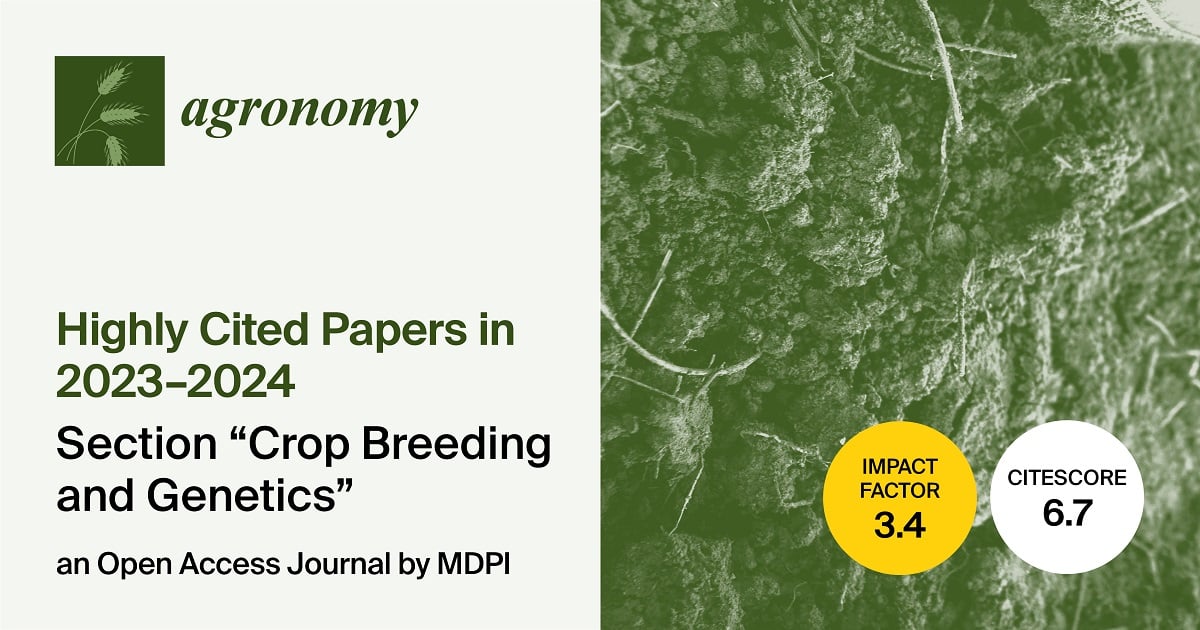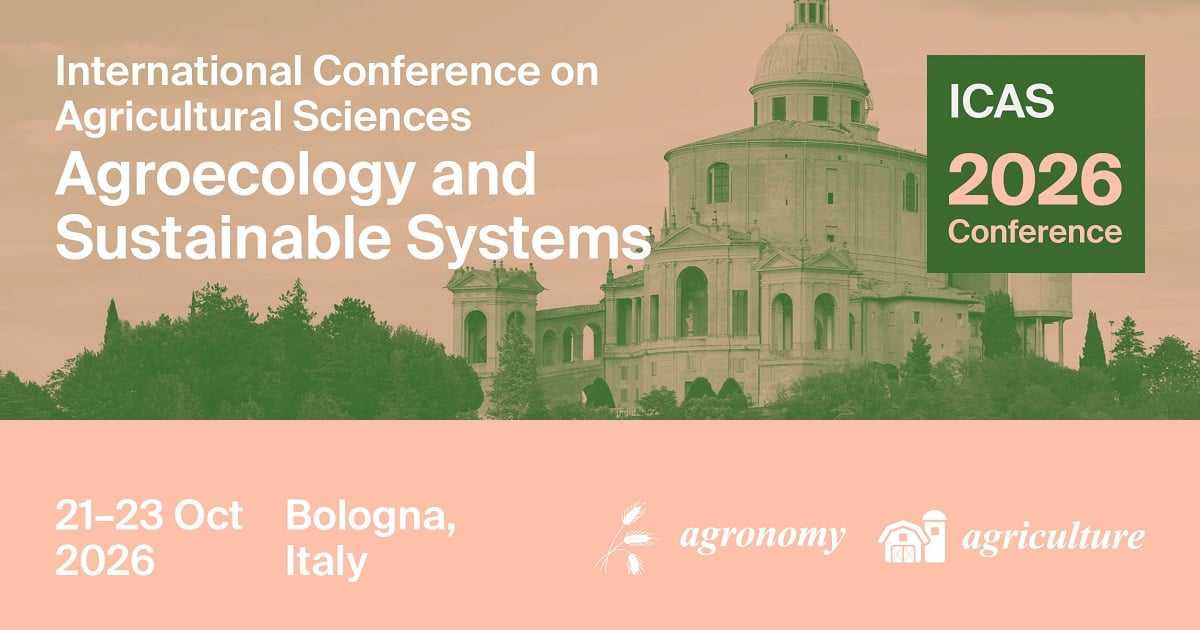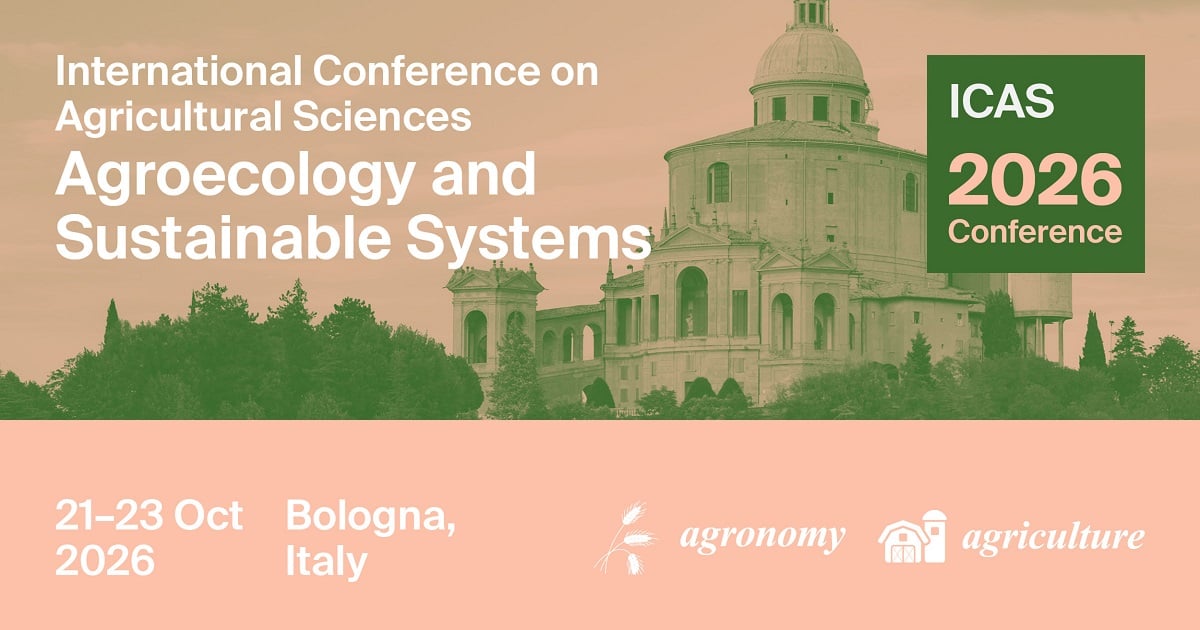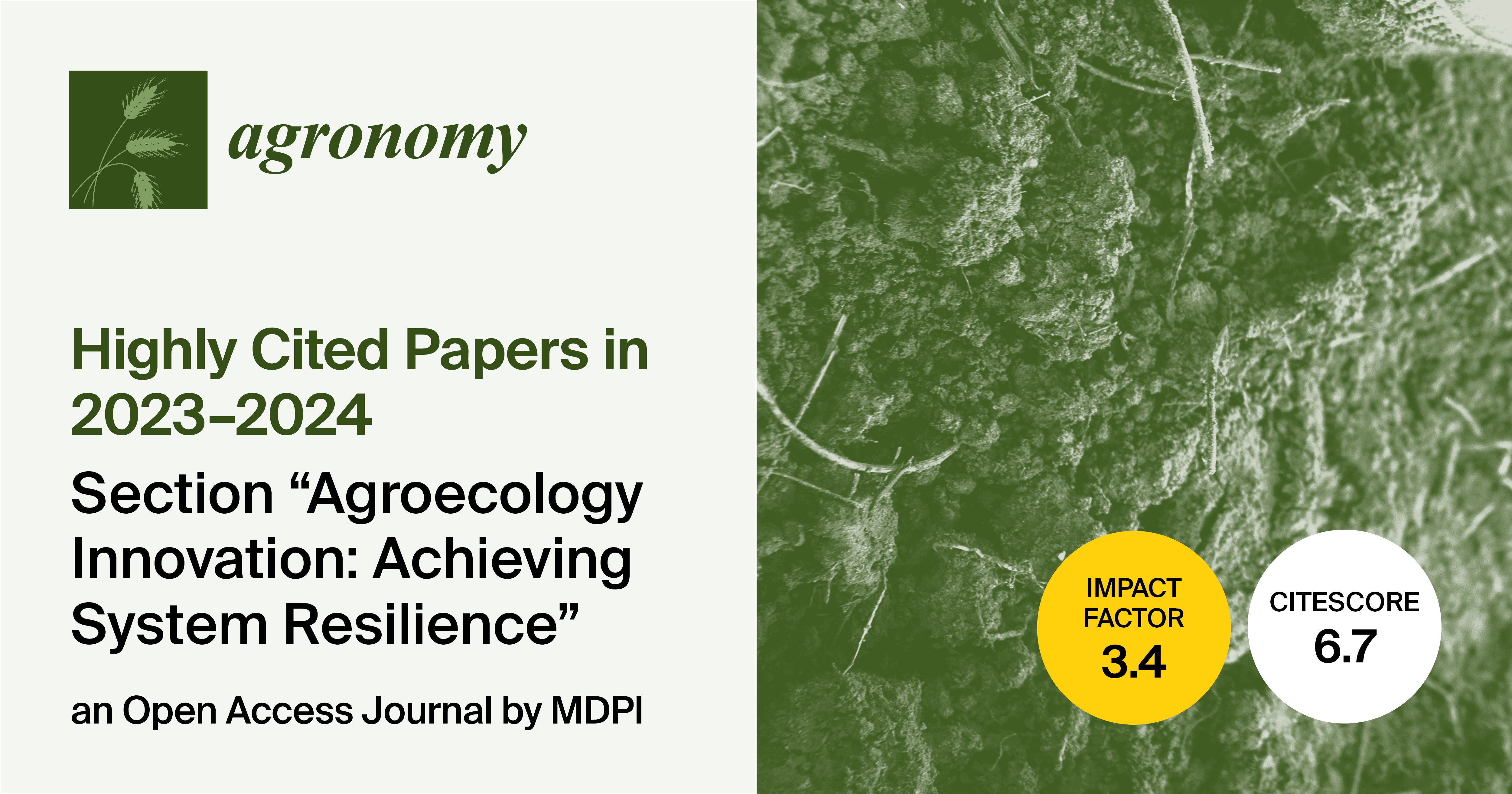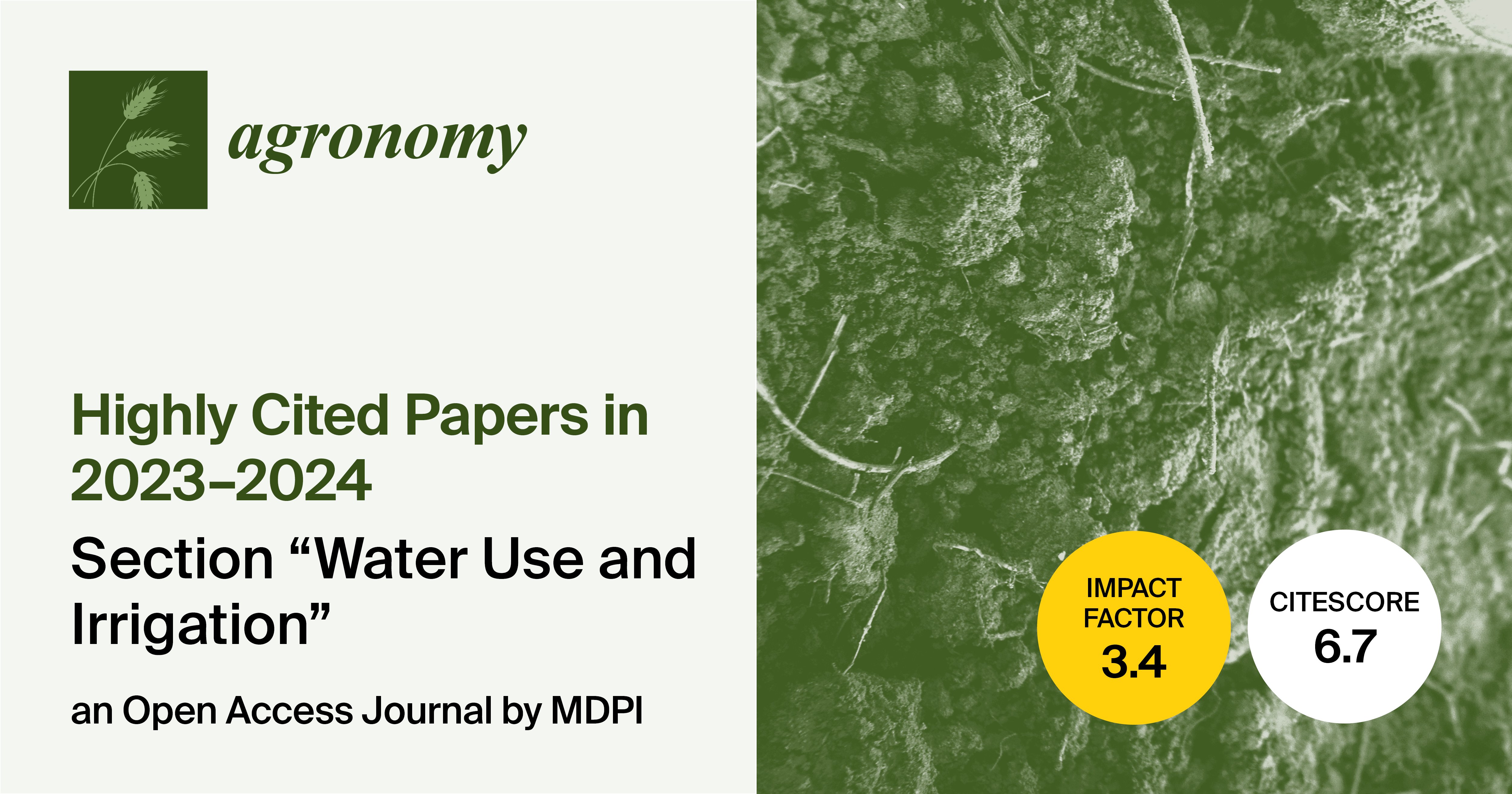- 3.4Impact Factor
- 6.7CiteScore
- 18 daysTime to First Decision
News & Conferences
Latest News & Announcements
Latest Conferences
Propose a Conference Collaboration
Promote and publicise your upcoming conference with MDPI.
All News & Conferences
News & Announcements
Meet Us at the Plant & Animal Genome Conference 33 (PAG 33), 9–14 January 2026, San Diego, CA, USA
17 December 2025
News & Announcements
Article Layout and Template Revised for Future Volumes
11 December 2025
News & Announcements
Agronomy | Highly Cited Papers in 2023–2024 in the “Agricultural Biosystem and Biological Engineering” Section
11 December 2025
News & Announcements
Agronomy | Highly Cited Papers in 2023–2024 in the “Precision and Digital Agriculture” Section
11 December 2025
News & Announcements
Agronomy | Highly Cited Papers Published in 2023–2024 in the “Plant-Crop Biology and Biochemistry” Section
8 December 2025
News & Announcements
Agronomy | Highly Cited Papers Published in 2023–2024 in the “Crop Breeding and Genetics” Section
8 December 2025
News & Announcements
World Soil Day—“Healthy Soils for Healthy Cities”, 5 December 2025
5 December 2025
MDPI Conference
The 2026 International Conference on Agriculture Sciences: Agroecology and Sustainable Systems
21 - 23 October 2026
MDPI Conference
The 2026 International Conference on Agriculture Sciences: Agroecology and Sustainable Systems
21 - 23 October 2026
News & Announcements
Agronomy | Highly Cited Papers Published in 2023–2024 in the “Agroecology Innovation: Achieving System Resilience” Section
3 December 2025
News & Announcements
Agronomy | Highly Cited Papers Published in 2023–2024 in the “Water Use and Irrigation” Section
2 December 2025
of 22





